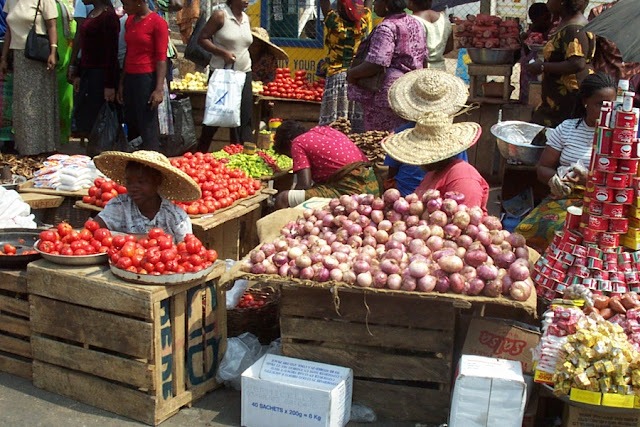Ghana’s economy is expected to recover its full potential by 2025, the World Bank has revealed in its latest Economic Update.
The report titled “Price Surge: Unraveling Inflation’s Toll on Poverty and Food Security” states that Ghana faces an extremely challenging outlook, and the economic situation is likely to remain challenging before it rebounds.
Economic growth is projected to slow down to 1.5% in 2023 and remain depressed in 2024 at 2.8%. However, the Ghanaian economy is expected to recover to its potential growth by 2025.
The report furthered that “A combination of domestic imbalances and external shocks in 2022, led to macroeconomic challenges in Ghana. The year was marked by currency depreciation, rising inflation, and tumbling investor confidence. Pre-existing fiscal vulnerabilities such as mounting debt burden, a rigid budget weakened by high energy sector costs and chronically low public revenues, were deepened by difficult global economic conditions”.
“As a result of efforts to address macroeconomic instability, corrective fiscal and monetary policies are expected to influence total demand and slow down non-extractive GDP growth”, said Pierre Laporte, World Bank Country Director for Ghana, Liberia, and Sierra Leone.
“High inflation, increased interest rates, and macroeconomic uncertainties will keep private consumption and investment growth below pre-pandemic levels, leading to subdued non-extractive growth in the short term; but growth will begin to recover to its potential by 2025 as drag from fiscal consolidation fades and macroeconomic stabilization and structural reforms start bearing fruit.”
Government urged to embark on structural reforms
The report recommended that in addition to managing the immediate macroeconomic crisis, the authorities would be well served by embarking on structural reforms to tackle its root causes, boost economic growth, and build economic resilience:
It called for Ghana to sustainably collect more domestic revenue, notably by streamlining tax incentive regimes and improving revenue administration.
It suggested that Ghana could implement tighter expenditure controls to improve budget execution accuracy and prevent new arrears accumulation.
The report stated that the government needs to fully address the energy sector shortfalls, which continue to threaten fiscal sustainability, and it calls on the government to extend, expand, and thoroughly implement the Energy Sector Recovery Programme.
“Rebuilding the financial sector’s capital buffers will promote financial stability and development. Based on recently published audited financial statements, the DDEP [Domestic Debt Exchange Programme] has eroded banks’ capital buffers and some banks are undercapitalized or insolvent.
It called on the government to boost the inflow of Foreign Direct Investments by enhancing the investment climate through improvements in transparency, accessibility, and quality of business regulation and regulatory governance.
On climate change adaptability, the report recommends that the government draws from recommendations of the World Bank’s recent Country Climate and Development Report (CCDR) to prioritize investments that maximize resilience benefits at an affordable cost.
“Macroeconomic shocks, particularly inflation tend to affect the poor the most. The next two years will be very tricky for Ghana’s poverty reduction efforts. Without bringing the economy back on track, no meaningful poverty reduction can happen. Concurrently, safety nets to protect the most vulnerable need to be enhanced to ensure sustainable poverty reduction and shared prosperity.” said Kwabena Gyan Kwakye, World Bank Economist and co-author of the report.
“Expanding and increasing transfers of the Livelihood Empowerment Against Poverty (LEAP) could ensure the poorest are able to cope and build resilience to future shocks”, he added.
The report also indicated that high inflation in 2022 has had significant effects on food security and poverty in Ghana and has eroded the purchasing power of Ghanaian households, leading to a deterioration in living standards and ultimately, worsening poverty and food insecurity.


